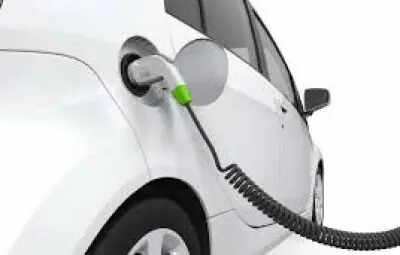[ad_1]
 The policy also aims to generate up to 20,000 jobs during its implementation period and facilitate the establishment of battery collection centres along with a city-wide network of charging and swappable battery stations.
The policy also aims to generate up to 20,000 jobs during its implementation period and facilitate the establishment of battery collection centres along with a city-wide network of charging and swappable battery stations.“>
The Delhi government on Tuesday approved an extension of its Electric Vehicle (EV) Policy by three months and continuation of power subsidy in the national capital, officials said. Till the time the new EV Policy 2.0 is implemented, the existing policy will remain in force, they said.
A Cabinet meeting chaired by Chief Minister Rekha Gupta also approved the continuation of the existing power subsidy for four categories — domestic consumers, farmers, lawyers with chambers, and victims of the 1984 anti-Sikh riots.
At a press conference held later at the secretariat, Transport Minister Pankaj Singh clarified that there will be no ban on auto-rickshaws or any other category of vehicles.
Speaking to PTI, Singh said, “There are many things the government wants to do for its residents, and we will incorporate those in the revised EV policy.
“However, I want to make it clear that there will be no ban on auto-rickshaws, nor is there any proposal to ban any category of vehicles. The current EV policy is expected to continue for approximately the next three to four months.”
At the presser, Delhi Home Minister Ashish Sood refuted claims about the discontinuation of the electricity subsidy and said the Cabinet has approved a special proposal to extend subsidies benefiting the farmers and lawyers, while ensuring continued support for riot victims.
The EV policy has been extended multiple times under both the previous AAP regime and the current government led by the BJP.
Launched in August 2020 as one of the key initiatives of the previous AAP government, the policy aimed to tackle vehicular pollution and push the adoption of electric vehicles to 25 per cent by 2024.
Although its initial three-year term ended in August 2023, the government decided to extend it.
According to the draft of the EV Policy 2.0, its primary objective is to encourage the adoption of electric vehicles to reduce pollution.
It proposes to cover mass categories such as two-wheelers, buses, three-wheelers, and goods carriers, with the aim of transitioning them to electric vehicles.
The draft policy also outlines a series of incentives to boost EV adoption. Women riders may be offered a subsidy of up to Rs 36,000 on the purchase of an electric two-wheeler.
Similarly, to encourage the use of electric two-wheelers, the government may offer a purchase incentive of Rs 10,000 per kilowatt-hour, capped at ₹30,000 per vehicle.
The policy also aims to generate up to 20,000 jobs during its implementation period and facilitate the establishment of battery collection centres along with a city-wide network of charging and swappable battery stations.
The policy, which will be notified after it receives Cabinet approval, seeks to improve Delhi’s air quality by aggressively replacing a large number of fossil fuel-run vehicles.
[ad_2]
Source link





